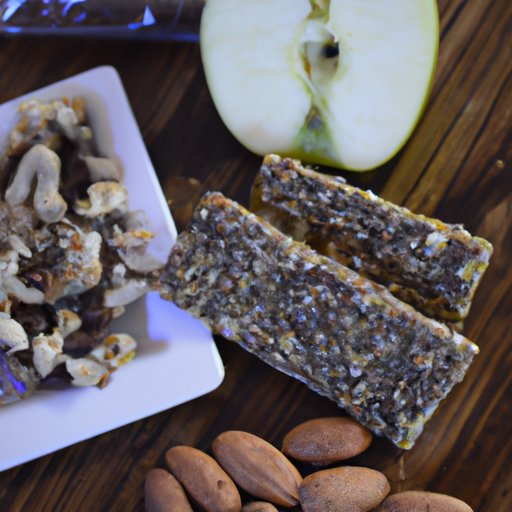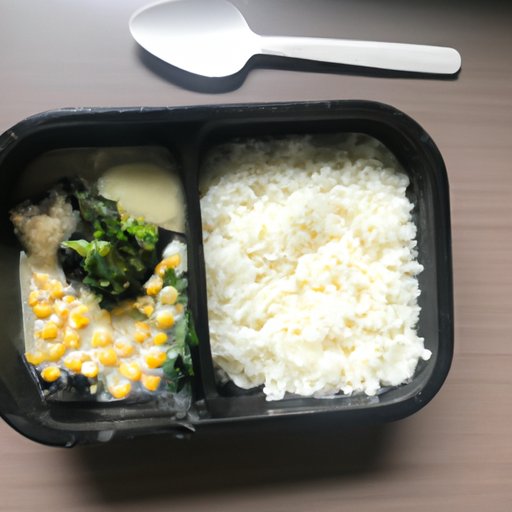Introduction
Junk food is defined as any type of food that is high in calories but low in essential nutrients like vitamins, minerals, and fiber. It typically contains large amounts of sugar, salt, fat, and preservatives. Examples of junk food include chips, candy, soda, doughnuts, cookies, and fast food.
People often turn to junk food for a variety of reasons – it’s convenient, it tastes good, and it can provide an emotional boost. But while it may be tempting to reach for these unhealthy snacks, they can have serious consequences on your health. Eating too much junk food can lead to weight gain, an increased risk of chronic diseases such as diabetes, heart disease, and certain types of cancer, and even mental health issues like depression and anxiety.
Identifying Triggers for Eating Junk Food and Developing Strategies to Avoid Them
In order to stop eating junk food, it’s important to first identify your triggers. Ask yourself why you are drawn to unhealthy snacks – is it out of boredom? Stress? Emotional eating? Once you understand the root cause of your cravings, you can begin to develop strategies to avoid them.
One way to do this is to change your environment. If you tend to reach for junk food when you’re watching TV or scrolling through social media, try to find a different activity that will keep your mind occupied. Take a walk, call a friend, or start a new hobby.
Another strategy is to plan ahead. Make sure you always have healthy snacks on hand, so if you do get a craving, you can reach for something nutritious instead. Keep a list of healthy snack ideas handy, so you don’t have to think twice about what to reach for.
“The key to avoiding unhealthy snacks is to have healthy options readily available,” says registered dietitian Emily Cooper. “If you know you’ll have access to nutritious snacks, you’ll be less likely to give into cravings.”

Replacing Unhealthy Snacks with Healthier Alternatives
Once you’ve identified your triggers and developed strategies to avoid them, you can start replacing unhealthy snacks with healthier alternatives. Try incorporating foods like fruits and vegetables, nuts and seeds, whole grains, and high-protein foods into your diet. These foods are packed with essential nutrients, which can help keep you full and energized throughout the day.
Don’t be afraid to get creative with your snacks! There are plenty of simple recipes out there for healthy snacks that are both delicious and nutritious. Try homemade granola bars, hummus and veggie sticks, trail mix, smoothies, yogurt parfaits, and more.
Allowing Yourself Indulgences in Moderation
It’s important to remember that it’s okay to indulge in junk food from time to time. Depriving yourself of the foods you love can lead to feelings of deprivation and guilt, which can actually increase cravings and make it harder to stick to healthy habits. That’s why it’s important to allow yourself indulgences in moderation.
When you do indulge, try to be mindful of portion sizes and indulging at the right times. For example, if you’re tempted to reach for a candy bar mid-afternoon, try having a piece of fruit or a handful of nuts instead. That way, you can satisfy your craving without overdoing it.

Eating Regular Meals Throughout the Day
Another way to stop eating junk food is to focus on eating regular meals throughout the day. Eating breakfast, lunch, and dinner on a regular schedule can help keep your blood sugar levels stable, which can reduce cravings for unhealthy snacks.
Meal planning can also be helpful. Plan out your meals for the week, and make sure you have all the ingredients you need on hand. This way, you’ll be less likely to reach for unhealthy snacks out of convenience.
Avoid Shopping When You Are Hungry
It’s also a good idea to avoid shopping for groceries when you are hungry. Studies have shown that people who shop when they are hungry tend to purchase more unhealthy snacks than those who shop after they have eaten.
If you do find yourself in the grocery store when you’re hungry, try to distract yourself. Listen to music, call a friend, or take a few deep breaths to calm your hunger pangs. Or, if you can, try to wait until after you’ve eaten to go shopping.

Get Active – Physical Activity Can Help Reduce Cravings for Junk Food
Finally, one of the best ways to stop eating junk food is to get active. Exercise releases endorphins, which can help reduce stress and cravings for unhealthy snacks. Aim for at least 30 minutes of physical activity a day – go for a walk, ride a bike, or take a yoga class.
“Physical activity is a great way to reduce cravings for junk food,” says Cooper. “Not only does it help release endorphins, but it can also help you stay focused on your goals and make better decisions about what you put into your body.”
Conclusion
Stopping the habit of eating junk food can be challenging, but it is possible. Start by identifying your triggers and developing strategies to avoid them. Then, replace unhealthy snacks with healthier alternatives, allow yourself indulgences in moderation, eat regular meals, avoid shopping when you’re hungry, and get active to reduce cravings. With a little bit of effort and dedication, you can break the cycle of unhealthy snacking and make lasting changes to your diet.
(Note: Is this article not meeting your expectations? Do you have knowledge or insights to share? Unlock new opportunities and expand your reach by joining our authors team. Click Registration to join us and share your expertise with our readers.)
